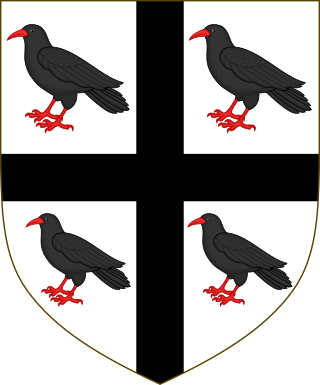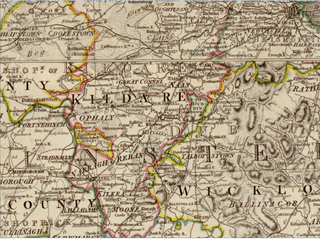Henry Aylmer may refer to:
- Henry Aylmer (Canadian politician) (1843–1918), Canadian soldier and politician
- Henry Aylmer, 2nd Baron Aylmer (c. 1694–1754), British Whig politician
- Henry Aylmer, 3rd Baron Aylmer (1718–1766), Royal Navy officer
Henry Aylmer may refer to:
John Nash may refer to:

Archibald Acheson, 2nd Earl of Gosford,, styled The Honourable Archibald Acheson from 1790 to 1806 and Lord Acheson from 1806 to 1807, was a British politician who served as Lieutenant-Governor of Lower Canada and Governor General of British North America in the 19th century.

Aylmer is a town in Elgin County in southern Ontario, Canada, just north of Lake Erie, on Catfish Creek. It is 20 kilometres (12 mi) south of Highway 401, and is almost equidistant between the United States cities of Detroit and Buffalo.

Lord Aylmer, Baron of Balrath, in the County of Meath, is a title in the Peerage of Ireland. It was created in 1718 for the naval commander Matthew Aylmer, the second son of Sir Christopher Aylmer, 1st Baronet, of Balrath. Lord Aylmer's son, the second Baron, represented Rye in the House of Commons. The latter's grandson, the fourth Baron, succeeded his kinsman as seventh Baronet, of Balrath, in 1776. The titles remain united. He was succeeded in both titles by his son, the fifth Baron. He was a general in the Army and served as Governor General of Canada from 1830 to 1835. Lord Aylmer assumed by Royal licence the additional surname of Whitworth in 1825 on the death of his uncle Charles Whitworth, 1st Earl Whitworth. On his death, the titles passed to his younger brother, the sixth Baron. He was an admiral in the Royal Navy.

Events from the year 1833 in Canada.

Events from the year 1836 in Canada.

Events from the year 1850 in Canada.

Matthew Whitworth-Aylmer, 5th Baron Aylmer, was a British military officer and colonial administrator.
Robert, Bob, Rob or Bobby Wright may refer to:
Aylmer is a surname. Notable people with the surname include:

Admiral of the Fleet Matthew Aylmer, 1st Baron Aylmer, of Covent Garden, Westminster, and Westcliffe, near Dover, was an Anglo-Irish Royal Navy officer and Whig politician who sat in the English and British House of Commons between 1695 and 1720.
Edward Digby may refer to:
Henry Aylmer was a Canadian soldier and politician.
Petre is a surname and given name derived from Peter. Notable persons with that name include:
Arthur Morton may refer to:
Henry Aylmer, 2nd Baron Aylmer was a British Whig politician.
Sir Charles Whitworth was a British politician who sat in the House of Commons for 31 years from 1747 to 1778. He was known for his expertise in statistics and finance.

The High Sheriff of Kildare was the British Crown's judicial representative in County Kildare, Ireland from the 16th century until 1922, when the office was abolished in the new Free State and replaced by the office of Kildare County Sheriff. The High Sheriff had judicial, electoral, ceremonial and administrative functions and executed High Court Writs. In 1908, an Order in Council made the Lord Lieutenant the Sovereign's prime representative in a county and reduced the High Sheriff's precedence. However, the sheriff retained his responsibilities for the preservation of law and order in the county. The usual procedure for appointing the sheriff from 1660 onwards was that three persons were nominated at the beginning of each year from the county and the Lord Lieutenant then appointed his choice as High Sheriff for the remainder of the year. Often the other nominees were appointed as under-sheriffs. Sometimes a sheriff did not serve his full term due to death or another event, and another sheriff was then appointed for the remainder of the year. The dates given in this article are the dates of appointment.
Events from the year 1833 in Scotland.